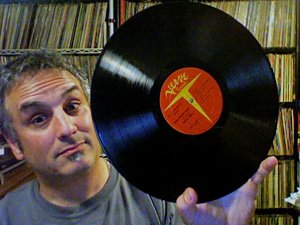It’s the time of year for saving money!
I recently picked up a new reissue of one of Herbie Hancock’s earliest solo records as a group leader, My Point Of View. This release is part of the fine Blue Note Records Tone Poet series.
In keeping with the reputation of all the past Tone Poet albums that I have reviewed, the quality standards here are very high. The fidelity is excellent, reportedly taken off of original master tapes as originally recorded by Rudy Van Gelder in March 1963. The 180-gram vinyl is dark black, dead quiet and perfectly centered, pressed at the respected RTI album manufacturing plant. The cover packaging likely exceeds the original with a sweet laminated expanded gatefold design that adds to the appeal of this deluxe package.
So, all those basic requirements have been checked off. I could just end the review here.
But for many customers curious about purchasing My Point Of View — especially new fans of his music who may not be familiar with all the different phases of his career — there is something interesting to consider about the music within this package: context.
As an artist, Herbie Hancock is highly regarded as one of the creative geniuses of our times, so many of us have gotten accustomed to the notion that most everything he releases will be fairly brilliant. With albums like Maiden Voyage, Empryean Isles, Mwandishi and Headhunters and so many other classics, it is easy to forget however that he had to start somewhere. And on this, his second album as a leader, that’s is where this album is a fascinating listening experience.
Don’t get me wrong: this is a perfectly solid recording with some lovely compositions that are played well by a top notch band including Donald Byrd on trumpet, Grant Green on guitar and an incredibly young 17-year-old Tony Williams on drums (one of his first recordings!).
Yet, as good as all this music is, I also get the sense that Herbie hadn’t quite found his own voice at this point in time… his compositional voice. So for those of you who might be buying this album blindly, expecting another Headhunters, do realize that this is very much an embryonic snapshot of Herbie’s early trajectory. And if you are a fan of following his trajectory, you should have this in your collection.
To that, if you are sampling the album online, the opening track — “Blind Man, Blind Man” — is a great groover but not entirely representative of what the rest of the album is about.
This isn’t a bad thing as every artist wants and needs a hit to make for a successful career. Accordingly, if that song feels like the “single” that is because it was! And, it is thus is largely vibing off that groovy early 1960s swinging mod party jazz sound you might hear in a hep movie soundtrack — think Ramsey Lewis’ hit “The In Crowd,” Vince Guaraldi’s “Cast Your Fate To The Wind” and Herbie’s own brilliant composition “Watermelon Man” (from his first album, which was a smash hit for Mongo Santamaria around that time!).
“The Pleasure Is Mine” is a beautiful slow ballad with a melody I would have loved to have heard John Coltrane perform. The closing track “And What If I Don’t” feels like a late night jazz club twist on the also-then-popular “Pink Panther Theme” (which was also released in 1963). It also reminds me a bit of a wonderful song by Clark Terry and Coleman Hawkins from that same year, “A Tune For The Tutor.” It think you get the idea — there was a certain flavor of jazz in air at that time which was cool and interesting, but a bit different than where he went even just a few years later.
I don’t think it would be fair to call My Point Of View a “transitional” album as that implies it is somehow bad. I would rather call it an evolutionary release, an important step in the career of one of the greatest musicians of our times. And for that alone, its an important album to explore and appreciate.














